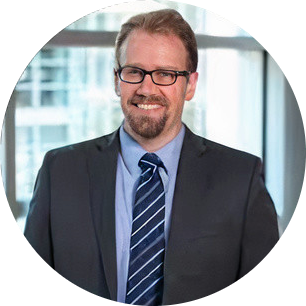- Member Spotlight
John F. Stanley, Orrick, Herrington & Sutcliffe LLP San Francisco, CA
He’s a public finance tax lawyer helping state and local governments and other qualifying entities borrow money on a tax-exempt basis, but that’s not all.

Tell us a little bit about yourself.
I’m a tax lawyer with Orrick in San Francisco. My practice is focused almost entirely on public finance tax issues, including particularly governmental, public power, and airport or port financings.
Prior to law school, I worked as a geologist for several years, including working on a portion of the pipeline project that was the subject of the City of Santa Rosa tax court case (one of the few cases dealing with Section 103 issues). I thought I would practice environmental law after law school, but happened to get assigned an arbitrage-related tax project from Chas Cardall while I was a summer associate at Orrick, and here I am. In hindsight, it is a blending of my parents’ careers—my mom was a CPA, and my dad was in finance/development at various universities.
I’ve lived in the San Francisco Bay Area since kindergarten, although I was born in Southern California. I have three teenagers, three cats, and live in co-housing, which is kind of an intentional, collaborative neighborhood where we know all our neighbors and share various resources (one lawn mower for 30+ houses).
You have been a volunteer for NABL for many years, and this year you are serving as Chair for The Institute 2024. How has volunteering shaped you and your career?
I think that, especially as a junior tax lawyer, it is possible to have a limited or narrow view of the industry focused just on the work in front of you. Volunteering, particularly with NABL, provided an opportunity for me to see a much broader view, as well as to get to know so many great people that I wouldn’t otherwise interact with.
The Institute 2024 will have a new format this year. Can you tell us about it?
In prior years, we’ve had some “Coffee Talk” sessions on Friday morning of The Institute, which are more of an open dialogue between participants than a traditional panel presentation, and the feedback on those sessions has been very positive. For the Institute 2024, we’re limiting attendance to 300 members and restructuring all the panel sessions into discussion forums. These changes allow for a collaborative learning experience where all attendees have the opportunity to actively participate in the forums (while still qualifying for continuing legal education credits).
What are new topics that will be discussed at the conference in April 2024?
Consistent with some of the great panels in prior years, we’re planning to have a few discussion forums focused on particular topics and exploring the legal issues that can result. For example, we’re planning one on federal grants for bond-funded projects, and discussing the tax issues that can result, including replacement proceeds, allocation questions, federal guarantees, and over-issuance concerns.
What is one thing – either industry-related or not – you learned in the past year?
I’ll give you two, one industry-related and one personal. First, how complex and detailed the law is around elective pay tax credits for energy projects. Second, how complex the feelings can be around sending a kid off to college. A mix of excitement, anxiety, sadness, and joy.